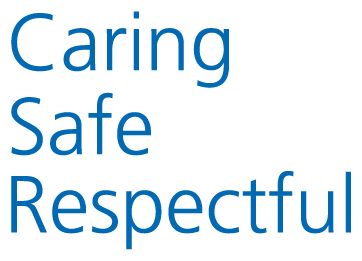Physiotherapy
After cardiac or thoracic surgery, you may be routinely referred to the Physiotherapy Team who will usually see you on the first day after your surgery or even the day of your procedure where appropriate. This may be on the Cardiothoracic Intensive Therapy Unit (CITU), Thoracic Enhanced Care Unit (TECU) or Wards 38 & 39.
You may even be seen by the physiotherapy team before you come round from your surgery anaesthetic to help ensure your lungs are clear and well expanded before they remove the breathing tube, however not all patients require this.
Along with the nursing staff, the therapy team may support you to get out of bed for the first time and will continue to focus on trying to keep you breathing well after surgery. Breathing complications, such as poor lung expansion or retained secretions (phlegm / catarrh), can sometimes occur following surgery to your heart or lungs. This can be due to the location of the surgical wound, chest drains or other attachments, which can make breathing and moving around temporarily more difficult following your surgery.
The physiotherapy team will support you to get moving around as quickly and as independently as possible and try to avoid these issues. Sometimes it is necessary to use other treatment to help clear your chest or to keep your lungs expanded but this will be explained to you if required.
You may be provided with a temporary walking aid (such as a rollator frame or a walking stick) to help you to progress with mobility during your hospital stay, but this is not always required.
Occupational Therapy
Patients can be referred to Occupational Therapy if required after cardiac or thoracic surgery. This may be on the Cardiothoracic Intensive Therapy Unit (CITU), Thoracic Enhanced Care Unit (TECU) or on Wards 38 & 39.
Occupational Therapists are professionals who use occupation (things we do) to assess, treat and rehabilitate people of all ages with a range of conditions both mental and physical.
The Physiotherapists or Nurses will discuss your activities of daily living (ADL’s) with you, they will gain your consent to refer you to an Occupational Therapist should you express concerns or should you be anxious about your recovery.
Your recovery following cardiac or thoracic surgery can affect how you feel able to care for yourself and can also affect you emotionally. It is normal to feel worried about having any surgical procedure especially if this is a result of having a heart attack or other cardiac event. It is also very common to be worried or anxious about going home after surgery. All ward staff can support you with your emotional recovery, however, cardiac occupational therapists can also suggest and teach techniques to manage anxiety and worry, should you require it.
The Cardiac Occupational Therapy team also offer recovery advice and education to address any concerns about you managing your usual activities at home during the early days. They can also guide you on gradual return to your usual levels of occupation and suggest different techniques that may help you to do the things you want to do.
Going home
Before you are discharged from the ward, the team will try to prepare you to manage your home environment safely whilst recovering. For this reason, you may be asked to demonstrate that you can undertake certain tasks such as washing and dressing, safely walking a certain distance or climb the stairs so it can be determined if you would likely manage at home at this time.
If you no longer require the medical support of the acute ward but are perhaps not quite ready to return to your home environment from a mobility or functional standpoint, you may be referred to the Transfer of Care Hub (TOCH) to identify a suitable support pathway for you at this time. You will be assessed by the team and involved in joint decision making about the most appropriate option for ongoing rehabilitation to maximise your independence and wellbeing. This may include transfer to an inpatient rehabilitation centre or a referral to services that will provide support and rehabilitation in your in your own home.
Following some types of cardiac surgery types, you may also be routinely referred to the Cardiac Rehabilitation Team in your local area for follow up during your recovery.



